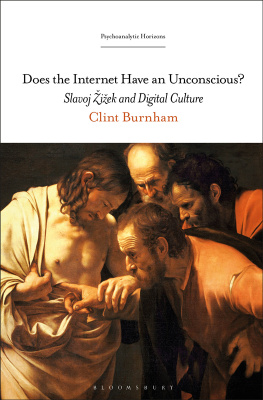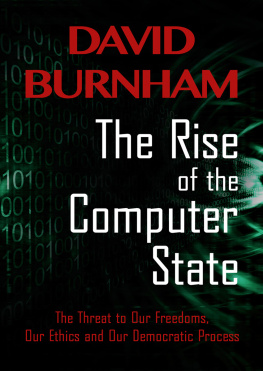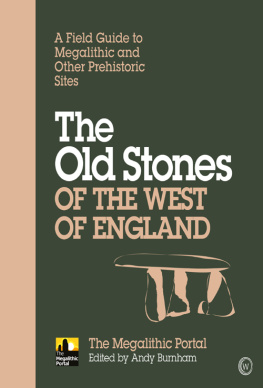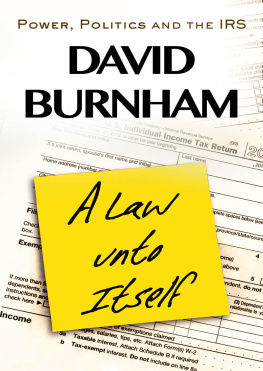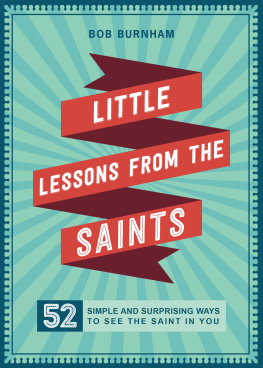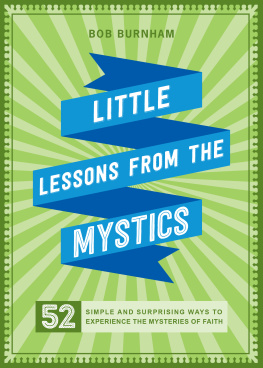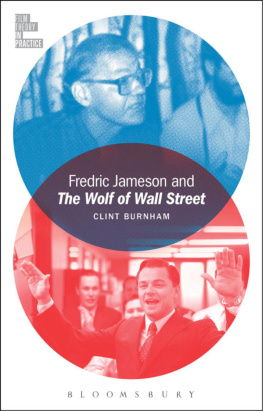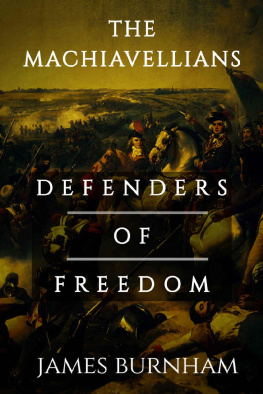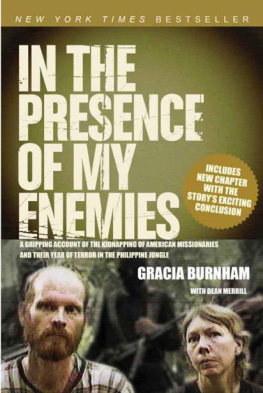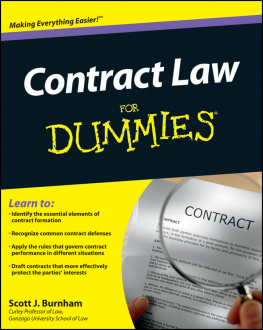Burnham - Does the Internet Have an Unconscious?
Here you can read online Burnham - Does the Internet Have an Unconscious? full text of the book (entire story) in english for free. Download pdf and epub, get meaning, cover and reviews about this ebook. publisher: Bloomsbury USA, genre: Romance novel. Description of the work, (preface) as well as reviews are available. Best literature library LitArk.com created for fans of good reading and offers a wide selection of genres:
Romance novel
Science fiction
Adventure
Detective
Science
History
Home and family
Prose
Art
Politics
Computer
Non-fiction
Religion
Business
Children
Humor
Choose a favorite category and find really read worthwhile books. Enjoy immersion in the world of imagination, feel the emotions of the characters or learn something new for yourself, make an fascinating discovery.
- Book:Does the Internet Have an Unconscious?
- Author:
- Publisher:Bloomsbury USA
- Genre:
- Rating:3 / 5
- Favourites:Add to favourites
- Your mark:
- 60
- 1
- 2
- 3
- 4
- 5
Does the Internet Have an Unconscious?: summary, description and annotation
We offer to read an annotation, description, summary or preface (depends on what the author of the book "Does the Internet Have an Unconscious?" wrote himself). If you haven't found the necessary information about the book — write in the comments, we will try to find it.
Does the Internet Have an Unconscious? — read online for free the complete book (whole text) full work
Below is the text of the book, divided by pages. System saving the place of the last page read, allows you to conveniently read the book "Does the Internet Have an Unconscious?" online for free, without having to search again every time where you left off. Put a bookmark, and you can go to the page where you finished reading at any time.
Font size:
Interval:
Bookmark:
Does the Internet
Have an Unconscious?
PSYCHOANALYTIC HORIZONS
Psychoanalysis is unique in being at once a theory and a therapy, a method of critical thinking and a form of clinical practice. Now in its second century, this fusion of science and humanism derived from Freud has outlived all predictions of its demise. Psychoanalytic Horizons evokes the idea of a convergence between realms as well as the outer limits of a vision. Books in the series test disciplinary boundaries and will appeal to readers who are passionate not only about the theory of literature, culture, media, and philosophy but also, above all, about the real life of ideas in the world.
Series Editors:
Esther Rashkin, Mari Ruti, and Peter L. Rudnytsky
Advisory Board:
Salman Akhtar, Doris Brothers, Aleksandar Dimitrijevic, Lewis Kirshner, Humphrey Morris, Hilary Neroni, Dany Nobus, Lois Oppenheim, Donna Orange, Peter Redman, Laura Salisbury, Alenka Zupani
Volumes in the Series:
Mourning Freud
Madelon Sprengnether
Does the Internet Have an Unconscious?: Slavoj iek and Digital Culture
Clint Burnham
On Dangerous Ground: Freuds Visual Cultures of the Unconscious (forthcoming)
Diane ODonoghue
Born After: Reckoning with the Nazi Past (forthcoming)
Angelika Bammer
The Analysts Desire: Ethics in Theory and Clinical Practice (forthcoming)
Mitchell Wilson
At the Risk of Thinking: An Intellectual Biography of Julia Kristeva (forthcoming)
Alice Jardine
Does the Internet
Have an Unconscious?
Slavoj iek and Digital Culture
Clint Burnham

This book is for Jeff Derksen, who knows I only do psychoanalysis because I have to.
Thank you to Mari Ruti for the early interest in this book; your belief in the project (your enjoyment of the symptom?) made it happen. Thanks as well to Haaris Naqvi and Katherine De Chant at Bloomsbury New York for the editorial stewardship, and to Vinita Irudayaraj at Integra in Puducherry for the copyediting and production. Special thanks to the anonymous reviewers of the manuscript. Thank you of course to Slavoj, Todd, and Anna for the generous blurbs.
appeared, in different form, in the proceedings of the first conference of the Canadian Network for Psychoanalysis and Culture (CNPC): The Freudian Legacy Today (2015). Thank you to the anonymous reviewers, and to the conference organizers: Dina Georgis, Sara Matthews, and James Penney.
A shorter version of appeared in iek and Media Studies: A Reader, eds. Matthew Flisfeder and Louis-Paul Willis. London: Palgrave, 2013. Thank you to Matthew and Louis-Paul especially for the comradely edits.
A version of was first published as the article Love and Sex in the Age of Capitalist Realism: On Spike Jonezs Her by Matthew Flisfeder and Clint Burnham from Cinema Journal, Vol. 57, No. 1, pp. 2545. Copyright 2017 by the University of Texas Press. All rights reserved. Thank you to the anonymous reviewers for their comments, and, again, to Matthew for the team effort.
A version of is forthcoming in After Lacan, ed. Ankhi Mukherjee. Cambridge: Cambridge University Press. Thank you to Ankhi for the comradely edits, to the anonymous reviewer for the push to sharpen my discussion of the fragility of the big Other, and to Anna Kornbluh for the assist.
Talks from the material in this book were delivered at the Department of English, Simon Fraser University (Vancouver), the Association of Canadian College and University Teachers of English (Kitchener), CNPC (University of Toronto), the Centre for Theory and Criticism (Western University), Incredible Machines (Vancouver), the International iek Studies Conference (Cincinnati), What is Documentary? (Portland), the University of Rijeka (Croatia), CAMRI at the University of Westminster (London), LaConference 2015 (Vancouver), and the LACK conference (Colorado Springs). Thanks to the organizers and audiences, and especially to Kelly Wood, Joshua Schuster, Mohammed Salemy, Katarina Peovi Vukovi, Christian Fuchs, Todd McGowan, and members of the Vancouver Lacan Salon. Thank you as well to the Urban Subjects collective for the Vienna residency, to my SFU colleagues in the Department of English, the Centre for Global Political Economy, Institute for the Humanities, and Office for Community Engagement. Thank you also to my students. Thanks to Alois Sieben for the index. Thanks, finally, to the anonymous reviewers on ratemyprofessors.com, who pointed out that I am an ageing hipster who tries to apply Lacan to everything: they are my sinthome!
ADB | Against the Double Blackmail: Refugees, Terror and Other Troubles with the Neighbors. London: Penguin, 2016. |
AR | Absolute Recoil: Towards a New Foundation of Dialectical Materialism. London: Verso, 2014. |
CHU | Judith Butler, Ernesto Laclau and Slavoj iek, Contingency, Hegemony, Universality: Contemporary Dialogues on the Left. London: Verso, 2000. |
Disparities | London: Bloomsbury, 2016. |
Event | London: Penguin, 2014. |
EYS! | Enjoy Your Symptom! Jacques Lacan in Hollywood and Out. London: Routledge, 1992. |
FTKNWTD | For They Know Not What They Do: Enjoyment as a Political Factor. 2nd Ed. London: Verso, 2008. |
FTTF | First as Tragedy, Then as Farce. London: Verso, 2009. |
IR | Interrogating the Real, ed. Rex Butler. London: Bloomsbury, 2005. |
LA | Looking Awry: An Introduction to Jacques Lacan through Popular Culture. Cambridge: MIT Press, 1992. |
LtN | Less than Nothing: Hegel and the Shadow of Dialectical Materialism. London: Verso, 2012. |
ME | Metastases of Enjoyment: Six Essays on Women and Causality. London: Verso, 1994. |
PF | The Plague of Fantasies. 2nd Ed. London: Verso, 2008. |
PV | The Parallax View. Cambridge: MIT Press, 2006. |
SO | The Sublime Object of Ideology. 2nd Ed. London: Verso, 2008. |
TS | The Ticklish Subject: The Absent Centre of Political Ontology. London: Verso, 1999. |
This book is both an introduction to the work of Slavoj iek and a way to use his ideas to think about the digital present. My thesis throughout is that we need the unique combination of German Idealism, Lacanian psychoanalysis, and Marxist materialism to be found in ieks thought to understand how the Internet, social and new media, and digital cultural forms workhow they work in our lives, how their failure to work structures our pathologies and fantasies, and how our failure to properly understandour misrecognition ofthe digital is constitutive of the political (it is where we organize and what we abandon to organize in real life [IRL]), of the aesthetic (which is to say, art in the age of the digital simulacra), and of the psychosexual (the smartphone, nestled next to our genitals or wallet, as the site of trolls, passwords, lovers, and sexts). But it works in the other direction, as well: we need the Internet, digital culture, social media, and smartphones, to understand iek; to understand how his thought is structured; how his books work; how his reputation, controversies, and ideas circulate, are debated, disagreed with, dismissedbut never ignored.
Next pageFont size:
Interval:
Bookmark:
Similar books «Does the Internet Have an Unconscious?»
Look at similar books to Does the Internet Have an Unconscious?. We have selected literature similar in name and meaning in the hope of providing readers with more options to find new, interesting, not yet read works.
Discussion, reviews of the book Does the Internet Have an Unconscious? and just readers' own opinions. Leave your comments, write what you think about the work, its meaning or the main characters. Specify what exactly you liked and what you didn't like, and why you think so.

